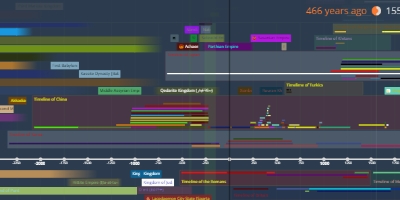First French Empire (Empire Français Imperium Francicum) (may 18, 1804 – apr 11, 1814)
Description:
The First French Empire, officially the French Republic (until 1809) then the French Empire (French: Empire Français; Latin: Imperium Francicum), was the empire ruled by Napoleon Bonaparte, who established French hegemony over much of continental Europe at the beginning of the 19th century. It lasted from 18 May 1804 to 11 April 1814 and again briefly from 20 March 1815 to 7 July 1815.Although France had already established a colonial empire overseas since the early 17th century, the French state had remained a kingdom under the Bourbons and a republic after the French Revolution. Historians refer to Napoleon's regime as the First Empire to distinguish it from the restorationist Second Empire (1852–1870) ruled by his nephew Napoleon III.
On 18 May 1804, Napoleon was granted the title Emperor of the French (Empereur des Français, pronounced [ɑ̃.pʁœʁ de fʁɑ̃.sɛ]) by the French Sénat (Senate) and was crowned on 2 December 1804, signifying the end of the French Consulate and of the French First Republic. Despite his coronation, the empire continued to be called the "French Republic" until 1809. The French Empire achieved military supremacy in mainland Europe through notable victories in the War of the Third Coalition against Austria, Prussia, Russia, and allied nations, notably at the Battle of Austerlitz in 1805. French dominance was reaffirmed during the War of the Fourth Coalition, at the Battle of Jena–Auerstedt in 1806 and the Battle of Friedland in 1807, before Napoleon's final defeat at the Battle of Waterloo in 1815.
A series of wars, known collectively as the Napoleonic Wars, extended French influence to much of Western Europe and into Poland. At its height in 1812, the French Empire had 130 departments, ruled over 44 million subjects, maintained an extensive military presence in Germany, Italy, Spain, and the Duchy of Warsaw, and counted Austria and Prussia as nominal allies. Early French victories exported many ideological features of the Revolution throughout Europe: the introduction of the Napoleonic Code throughout the continent increased legal equality, established jury systems and legalized divorce, and seigneurial dues and seigneurial justice were abolished, as were aristocratic privileges in all places except Poland. France's defeat in 1814 (and then again in 1815), marked the end of the Empire.
Added to timeline:
Date:
may 18, 1804
apr 11, 1814
~ 9 years and 10 months
